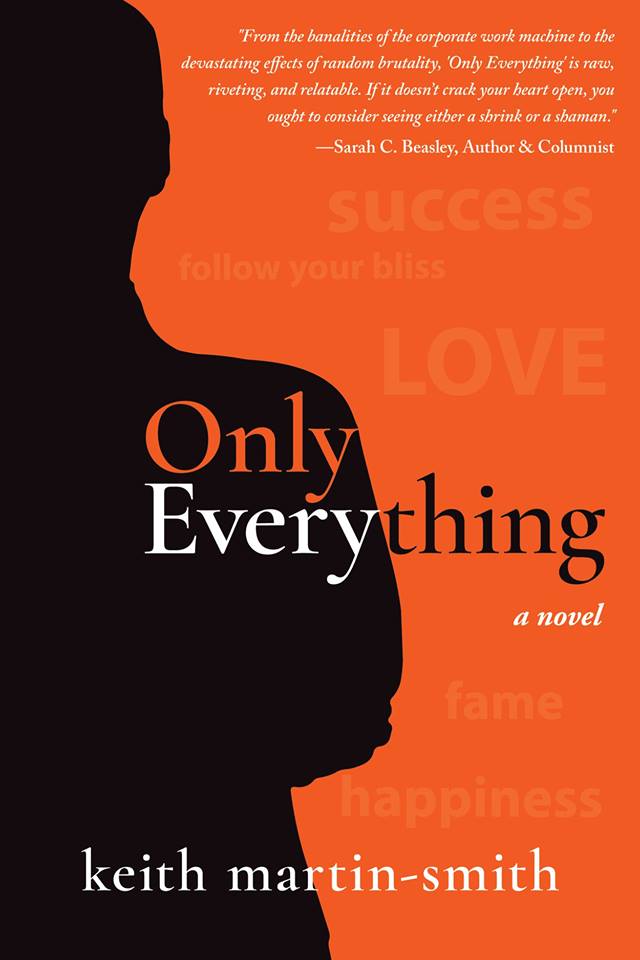
Broken dreams shroud middle-aged Logan, once a promising novelist, as he stiffly settles himself into a nine-to-five corporate life. Logan marches forward with a beautiful and brightly positive fiancé. He writes marketing copy. He pays his bills. He lives in a well-appointed home. But Logan feels weighted by a past that might be an anchor or a lifeline.
Only Everything by Keith Martin-Smith is a profoundly affecting work of fiction that explores deep truths. With the narrative opening between the present and twenty-something Logan’s life in New York City as he writes his first novel, we get bright future and bleak mid-life all at once, a jarring split-screen, with each side haunting the other. Logan’s NYC girlfriend, Carissa, believes in him, pushes him, and loves him. His friends help and encourage him. Yet somehow it’s not enough. As the story unfolds, Martin-Smith connects the different parts of Logan’s life to uncover why.
The novel pushes deep into the unsettling complexities of yearning for a true life. Freedom, talent and love shove themselves through modern life’s relentless gauntlet of conformity and material success. Logan wishes only to bring his words into the world and say something that matters. Martin-Smith imbues Logan with a caustic earnestness, allowing him at times to be unlikable, slogging through the weight of the world. He drinks to erase the pain of unrealized dreams, but clings to a loosening grip on who he was and what he’s had and lost.
Martin-Smith peels back Logan’s truth through actions and conversations with those closest to him, uncovering the basic human need to connect. Slowly, and then with a lighting-quick, all-too-human encounter that smashes the false against the real, Logan stumbles forward, disoriented but reconnected to the young man determined to realize his dreams. His life is no longer a prayer but an action, something real that pushes out of the traps that held him lifeless. Martin-Smith doesn’t flinch at the consequences of such brutal honesty. He shows us the repercussions of Logan’s actions, the lives hurt by the pursuit of one’s own truth. Yet, at the same time, Logan’s life reveals the absolute necessity of those actions.
Novelists often use their own lives to get at the messiness of the human condition. Philip Roth created his flawed alter ego Nathan Zuckerman, and Kurt Vonnegut translated the awfulness of his young life in war into distinct, iconoclastic truths about life. Martin-Smith places into the world this small novel that travels a similar path: to uncover universal truths in one particular life. Logan personifies the truth of the poet Rainer Maria Rilke, “I want to unfold/Let no place in me hold itself closed/for when I am closed, I am false.”
That lyrical lament fuels dreams like Logan’s, and fuels the import of his story. Confronting core existential truths about personal authenticity and integrity and freedom allows a person to open themselves to life no matter what comes. That realization is more than worth the price of admission to this excellent novel.
Book Links
STAR RATING
Design
Content
Editing
Get an Editorial Review | Get Amazon Sales & Reviews | Get Edited | Get Beta Readers | Enter the SPR Book Awards | Other Marketing Services























Leave A Comment